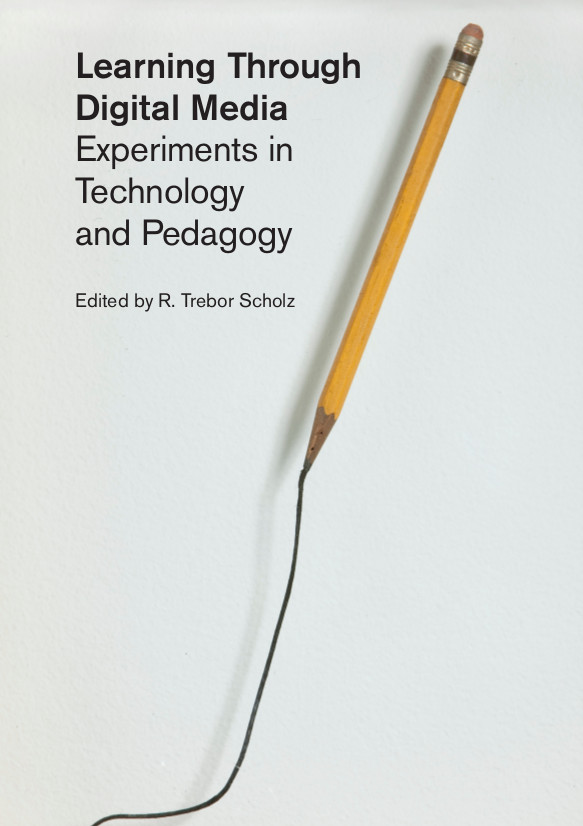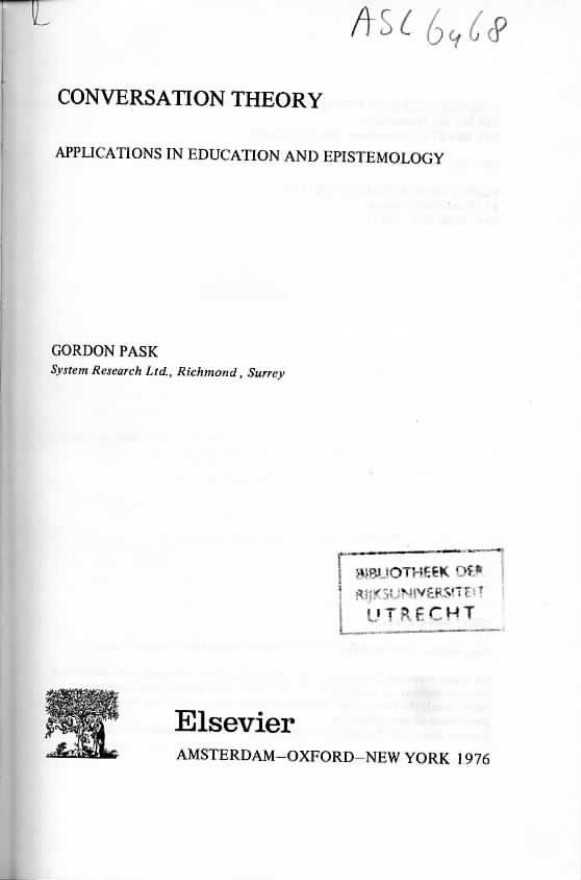Art of Digital London: TheKnowledge: Digital Strategy in Culture (2012)
Filed under book | Tags: · archive, community media, gaming, knowledge, learning, online video, p2p, peer production, publishing, social media, sound recording, video

It is the knowledge of the use of digital tools in a cultural context from its practitioners that we have called peer learning. Building on the experience of practitioners, addressing the needs of cultural organisations across all sizes and covering opportunities for artistic development to operational areas of production, the authors have put a series of articles and research using the collaborative writing tool, a Wiki.
Publisher OpenMute, London, March 2012
ISBN 978-1-906496-68-5, 978-1-906496-69-2
View online (HTML articles)
Comment (0)Trebor Scholz (ed.): Learning Through Digital Media: Experiments in Technology and Pedagogy (2011)
Filed under book | Tags: · digital media, education, labour, learning, media studies, pedagogy, social media, software, web

“The simple yet far-reaching ambition of this collection is to discover how to use digital media for learning on campus and off. It offers a rich selection of methodologies, social practices, and hands-on assignments by leading educators who acknowledge the opportunities created by the confluence of mobile technologies, the World Wide Web, film, video games, TV, comics, and software while also acknowledging recurring challenges.” (from Introduction)
“This publication is the product of a collaboration that started in the fall of 2010 when a total of eighty New School faculty, librarians, students, and staff came together to think about teaching and learning with digital media. These conversations, leading up to the MobilityShifts Summit, inspired this collection of essays, which was rigorously peer-reviewed.
The Open Peer Review process took place on MediaCommons, an all-electronic scholarly publishing network focused on the field of Media Studies developed in partnership with the Institute for the Future of the Book and the NYU Libraries. We received 155 comments by dozens of reviewers. The authors started the review process by reflecting on each other’s texts, followed by invited scholars, and finally, an intensive social media campaign helped to solicit commentary from the public at large.” (from About)
Publisher The Institute for Distributed Creativity, New York, 2011
Creative Commons NoDerivs, Non-Commercial, Attribution, ShareAlike License
ISBN 97806154514480
338 pages
Book website (archived)
PDF, PDF (12 MB, updated on 2016-6-19)
EPUB, EPUB (3 MB, updated on 2016-6-19)
HTML essays (archived)
Gordon Pask: Conversation Theory. Application in Education and Epistemology (1976)
Filed under book | Tags: · communication, cybernetics, education, epistemology, knowledge, knowledge production, learning

“The argument in this book aims to apply a body of cohesive and interpretable ideas, developed over the last dozen years or so, to issues of significance in educational psychology and epistemology. The history and development of these ideas, which emerged from experiments on perceptual motor learning, group interaction and sequential choice (as well as more obviously relevant studies of learning, subject matter structuring and cognition), are described in two previous books (Pask 1961, 1975a). But the main themes are crystallised in a monograph (henceforward called ‘the previous monograph’), Pask 1975b, Conversation, Cognition and Learning, which is part of the present series. In fact, the previous monograph marks a point of departure, for the notions cling together well enough to count as an empirically supportable theory: Conversation Theory.
Ideally, perhaps, Conversation, Cognition and Learning should be read first. But there are some 600 odd pages of it, including some lengthy appendices, and provided the reader will take various statements on trust, it is quite possible to start with this book. Conversation, Cognition and Learning can be regarded, with equal legitimacy, as an essay in man/man and man/machine symbiosis or as an essay upon education, learning and the like. In contrast, the present book is an application study and is unambiguously oriented towards the areas of education, its psychology and epistemology. The Introduction provides the essential groundwork, and for those who have read Conversation, Cognition and Learning, it bridges the gap between the two volumes.” (Gordon Pask, from Preface)
Publisher Elsevier, Amsterdam-Oxford-New York, 1976
ISBN 044441424X, 9780444414243
402 pages
via pangaro.com
PDF (updated on 2012-7-16)
Comment (0)
